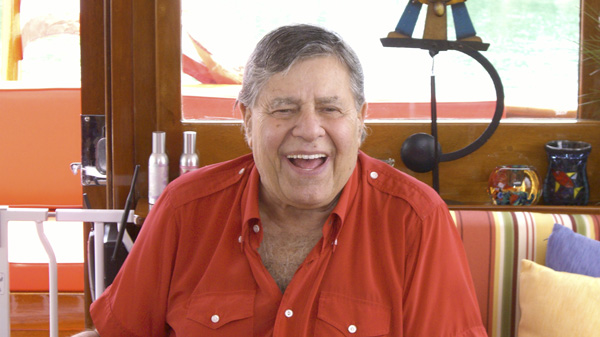When Comedy Went to School sometimes rises above schmaltzy nostalgia to become an informative and entertaining history of the stand-up comic. What makes it worth watching are the personal perspectives of legends, like Jerry Lewis, Jerry Stiller, and Sid Caeser, recalling how they got their start by trying to get audiences to laugh in the Borscht Belt of upstate New York.
Genial host Robert Klein guides Lawrence Richards’s pun-filled script through a mostly chronological tour of the Catskill Mountains that attracted families of immigrant Jews seeking respite from the summer heat. The development of the “comedy boot camp” is illustrated with photographs (including of a young Klein working his way up from bus boy), posters, and lots of brief, funny clips of the comedians’ later TV appearances. This circuit is linked to the last gasps of Yiddish theater (Klein notes how so many punch lines seemed to be in Yiddish) and vaudeville through talent agencies that loaded up cars with comics from the city and headed north. That’s according to Joe Rapp and Arnold Graham of the still-active Rapp Agency—both seem straight out of Broadway Danny Rose. (Woody Allen is only referenced later for his stand-up shtick.)
The story first wanders through the site of 500 small hotels and rooming houses (like the one my relatives ran) and bungalow colonies (where my family vacationed). The character of the surroundings was much more poignantly documented in Andrew Jacobs’ 2009 Four Seasons Lodge, though here with caustic jokes about why Jews had no interest in traveling back to Europe. The tour starts getting lost away from the comedians’ spotlight on the grounds of the big resort hotels like Grossinger’s. (It was easy to get lost at such places during our family reunions.) Memories of heaping portions of food finally get around to showing that comedians were early on considered just the final course on the menu, before they were later featured as night club entertainment.
The highlight of these anecdotes is Jerry Lewis’s descriptions of his beginnings. Then known as Joseph Levitch, he worked as a bus boy cracking jokes for his regular customers to increase his tips, even after he was warned by the maître d’ that he was starting to make more than the waiters. (Illustrative clips from his 1960 The Bellboy reveal its autobiographical elements—be sure to continue watching during the documentary’s credits to see how Lewis directs his interview here, too.) His experiences are an alternative to the standard history that comedians came out of the tradition of the tummler, who was more of a clownish social director. This is how Jackie Mason says he got his start. Larry King’s memories are superfluously included because he, too, was a busboy—and shows why he didn’t become a comic.
There are a handful of older comedians who are probably less known to a general audience, such as the late Mickey Freeman. Mort Sahl points out that even political humorists like him and Lenny Bruce were first employed there, and a couple of contemporary comedians duly note for younger viewers the Catskills’ significance. There are also interviews with family members, like Buddy Hackett’s son, whose wife Lisa Dawn Miller sings “Make ‘Em Laugh” and “Send in the Clowns” on the soundtrack. It’s fun to hear even one Mickey Katz parody, “She’ll Be Coming ‘Round the Katzkills,” among the period songs with Catskills’ references.
A couple of academics comment, but the superficiality can be annoying, such as referring to the Broadway musical Fiddler on the Roof without any mention of its source material. Joseph Dorman’s Sholem Aleichem: Laughing in the Darkness credits author Aleichem as a major influence on Jewish comedy writers. There’s also more substantive background in various PBS’s series (Make “Em Laugh and The Jewish Americans) and American Masters’ episodes, including on Woody Allen and Mel Brooks. Overall, too much time is spent with hoteliers (and longtime guests), who similarly recalled the past in the better documentary Caroline Laskow and Ian Rosenberg’s Welcome to Kutsher’s: The Last Catskills Resort. Maybe this film goes to prove that Woody was quoting the Catskills’ audience in Stardust Memories—just tell funnier jokes.







Leave A Comment